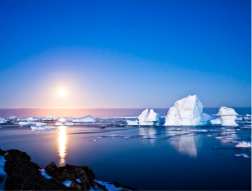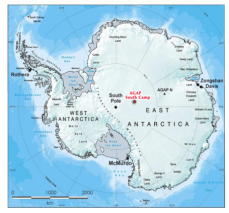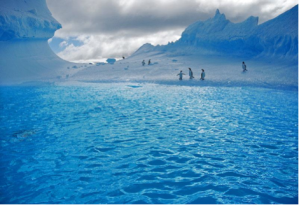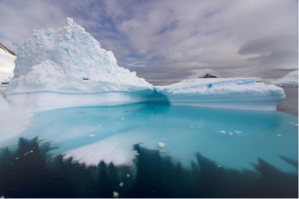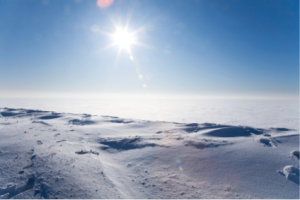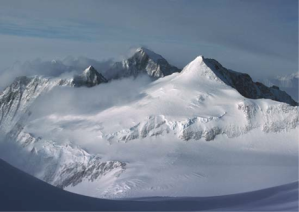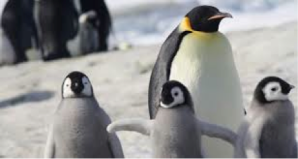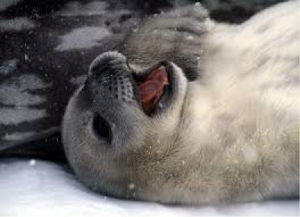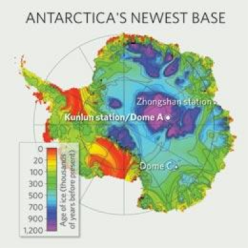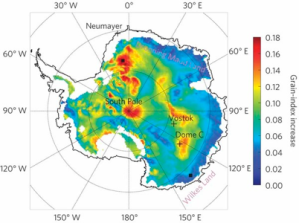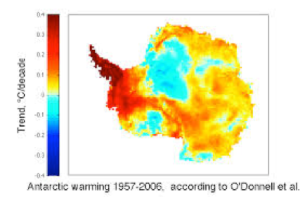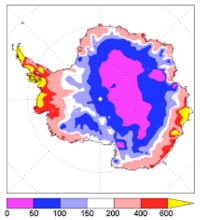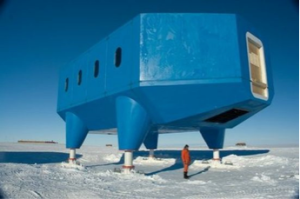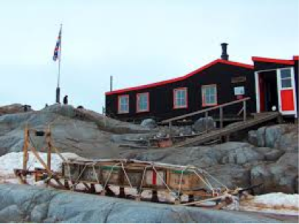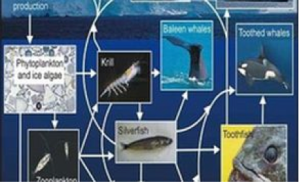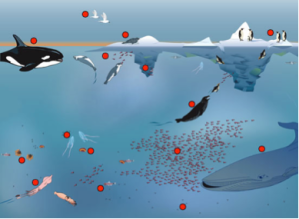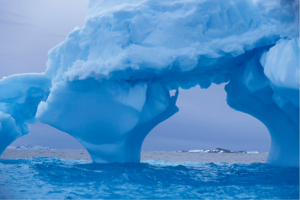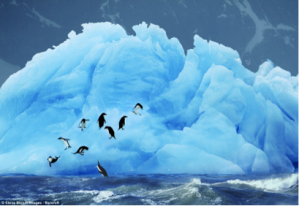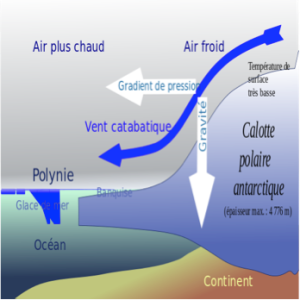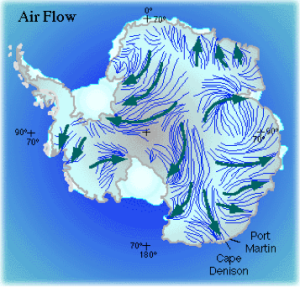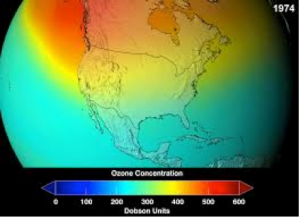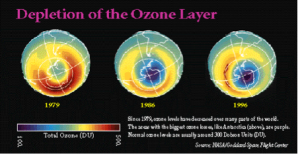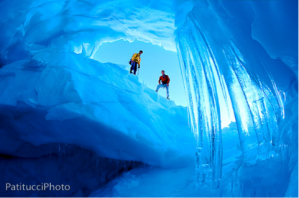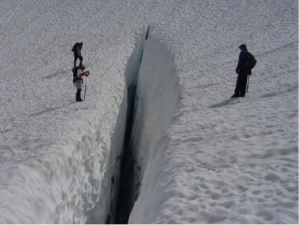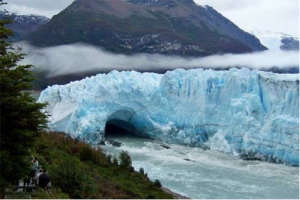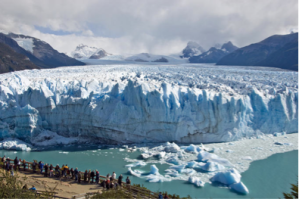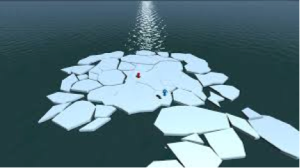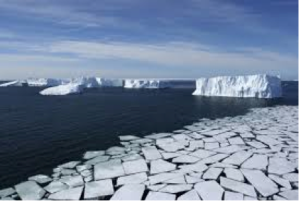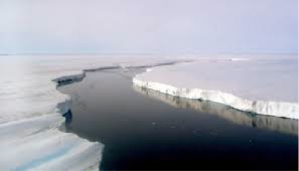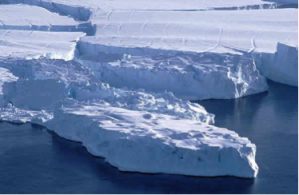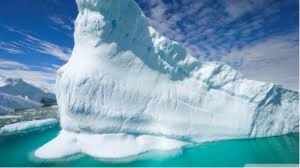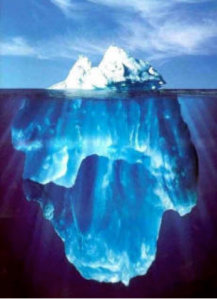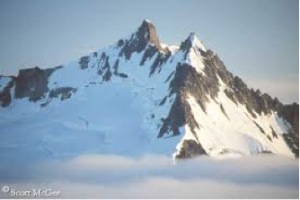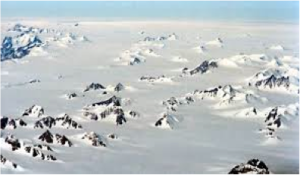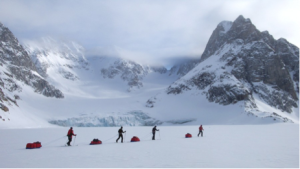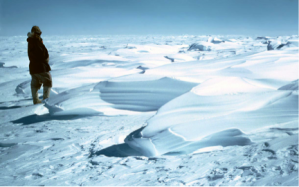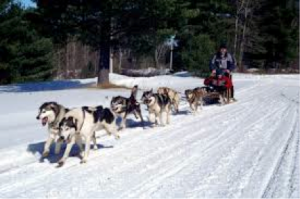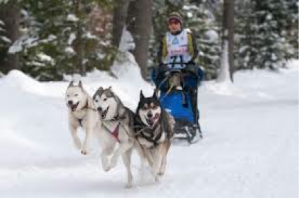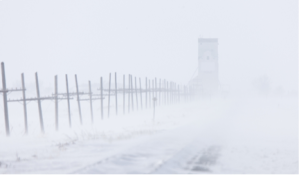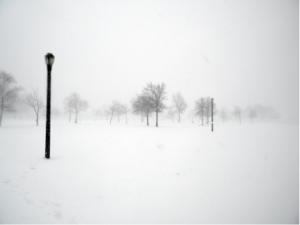Antarctica
– Antarctica is Earth’s southernmost continent, containing the geographic South Pole. It is situated in the Antarctic region of the Southern Hemisphere, almost entirely south of the Antarctic Circle, and is surrounded by the Southern Ocean.
Water
The temperature of the water:
Antarctica is the coldest, driest, windiest continent on the planet. Temperatures can plummet to -58°F, which is 90°F below freezing (32°Fis freezing). Antarctica is so cold that most of the ice there never melts; the continent is permanently covered in ice.
Land
– Wilkes Land is a large district of land in eastern Antarctica, formally claimed by Australia as part of the Australian Antarctic Territory, though the validity of this claim has been placed for the period of the operation of the Antarctic Treaty, to which Australia is a signatory.
Animals
– Antarctic animals – The most abundant and best known animals from the southern continent. Penguins, whales seals, albatrosses, other seabirds and a whole range of invertebrates you may have not heard of such as krill which form the basis of the Antarctic food web.
Climate
– Antarctica is the coldest continent on earth, and has a climate of extremes. The continent is snow- and ice-covered, with freezing temperatures all year round. So-called “Catabian winds” can cause violent snowstorms that can last for days, and sometimes-even weeks, making it very dangerous to stay outside.
Temperature
– The Climate of Antarctica is the coldest on Earth. Antarctica has the lowest naturally occurring temperature ever recorded on the surface of the Earth: −89.2 °C (−128.6 °F) at Vostok Station. Satellites have recorded even lower temperatures, down to −93.2 °C (−135.8 °F).
Living Conditions
– Antarctica has no native human population. It is a hostile environment and living there is extremely difficult. Researchers from a number of countries occupy the continent at various bases. Ship and air support provide the transportation of personnel, equipment, cargo and supplies. This includes vehicles, food, fuel, research equipment, clothing, etc.
Ecosystem
– Antarctic krill is the keystone species of the ecosystem of the Southern Ocean, and is an important food organism for whales, seals, Leopard Seals, fur seals, Crab eater Seals, squid, ice fish, penguins, albatrosses and many other birds.
Blue ice
– Blue ice occurs when snow falls on a glacier, is compressed, and becomes part of a glacier that winds its way toward a body of water. During its travels, air bubbles that are trapped in the ice are squeezed out, and the size of the ice crystals increases, making it blue. In some areas, earthquakes have raised the blue ice above the ground and created formations much like large frozen waves.
katabatic
– A katabatic wind, from the Greek word katabatikos meaning “to flow downhill”, is the technical name for a drainage wind, a wind that carries high density air from a higher elevation down a slope under the force of gravity. Such winds are sometimes also called fall winds. Katabatic winds can rush down elevated slopes at hurricane speeds, but most are not as intense as that, and many are of the order of 10knots (18 km/h) or less.
CFC: chlorofluorocarbon
- – A chlorofluorocarbon(CFC) is an organic compound that contains only carbon, chlorine, and fluorine, produced as a volatile derivative of methane, ethane, and propane. They are also commonly known by the DuPont brand name Freon. The most common representative is dichlorodifluoromethane (R-12 or Freon-12). Many CFCs have been widely used as refrigerants, propellants (in aerosol applications), and solvents.
Crevasses
– a deep open crack, especially one in a glacier.
Glacier
– a slowly moving mass or river of ice formed by the accumulation and compaction of snow on mountains or near the poles.
Ice sheet
– a layer of ice covering an extensive tract of land for a long period of time.
ice shelf
– a floating sheet of ice permanently attached to a land mass.
iceberg
– a large floating mass of ice detached from a glacier or ice sheet and carried out to sea.
nunatak
– an isolated peak of rock projecting above a surface of inland ice or snow.
pack ice sastrugi
– hard ripples in the snow or ice that are caused by winds
sledge
– a vehicle on runners for conveying loads or passengers over snow or ice, often pulled by draught animals.
whiteout
– a dense blizzard, especially in polar regions
